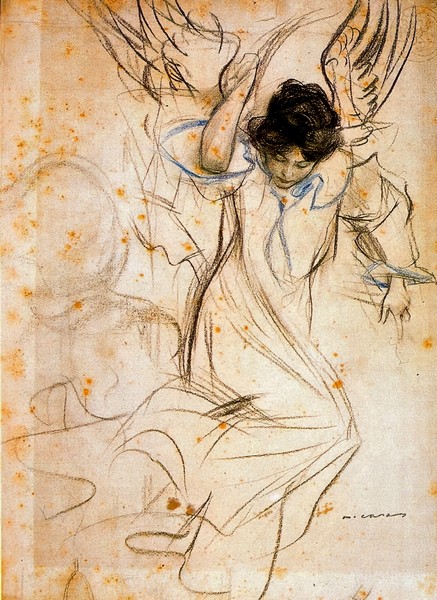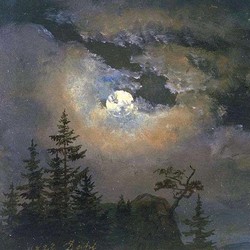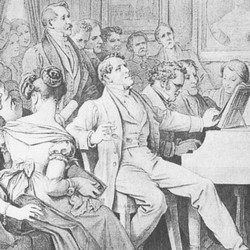
In the spring of 1815, Franz Schubert was immersed in the period that is commonly referred to as the “year of miracles,” when he composed approximately 150 lieder. At his 18 years, he tried, experimented, and laid the foundations for a new genre, surely without being aware of it. He was aware, however, that he wanted to make songs his own way, although he valued the style of the Berlin School (with composers such as Reichardt and Zelter) whom he had been studying for several years.
I use the word experiments and this could imply that all that works were valuable from a musicology perspective, but had little interest for music lovers. However, if we call this time the “year of miracles” it is precisely because it is a very valuable work; let's remember that this compositional fever began on 19 October 1814 with a masterpiece, Gretchen am Spinnrade.
In mid-May, Schubert was concentrating on the poems of Ludwig Hölty (you can find three of the Lieder in the “Related Articles” section at the end of this text), but he never strayed too far from Goethe. On May 19, he composed a magnificent Lied, Rastlose Liebe, and on June 21, another pearl, Meeres Stille. Between these two masterpieces, on June 3, he wrote the song we're listening to today, Die Liebe, little known despite its very fine and remarkable beauty. The poem is taken from Egmont, a tragedy by Goethe inspired by the confrontation between Count Lamoral of Egmont and the Duke of Alba, in the 16th century; It's a song sung by Clärchen, one of the characters in the play. Some time ago, we listened to one of the versions Franz Liszt wrote.
Clärchen sings these verses to his mother, with whom she has disagreements regarding love and marriage, and describes it as a “powerful song”. Schubert's song, in a way, is also powerful; the composer manages to balance the emotion contained and the exaltation, the joy and the pain of which the poem speaks. The song is full of lyricism and the vocal line is broad. The first verses have a calm atmosphere, remarked beautifully by the piano; then follows the exultant expression of the verse “Himmelhoch jauchzend” [touching the heavens in joy], with the piano enhancing Clärchen's determination. Schubert repeats the last two verses, Glücklich allein | ist See diele, die liebt [happy alone | is the soul that loves], and he closes the brief song with some piano measures that seem to be the silent meditation of the young woman.
Die Liebe is a song that I like very much, and I'm sharing a version that caught me the first time I heard it; inevitably, I had to listen to it a few times afterwards. Soprano Harriet Burns and pianist Ian Tindale are the performers, a duo that recently presented their first CD, “Schubert Lieder: Love's Lasting Power”, a highly recommended album that invites you to follow them closely. I hope you will enjoy their Die Liebe.
Und leidvoll,
Gedankenvoll sein;
Langen
Und bangen
In schwebender Pein;
Himmelhoch jauchzend,
Zum Tode betrübt—
Glücklich allein
Ist die Seele, die liebt.
Please follow this link if you need an English translation


















Comments powered by CComment